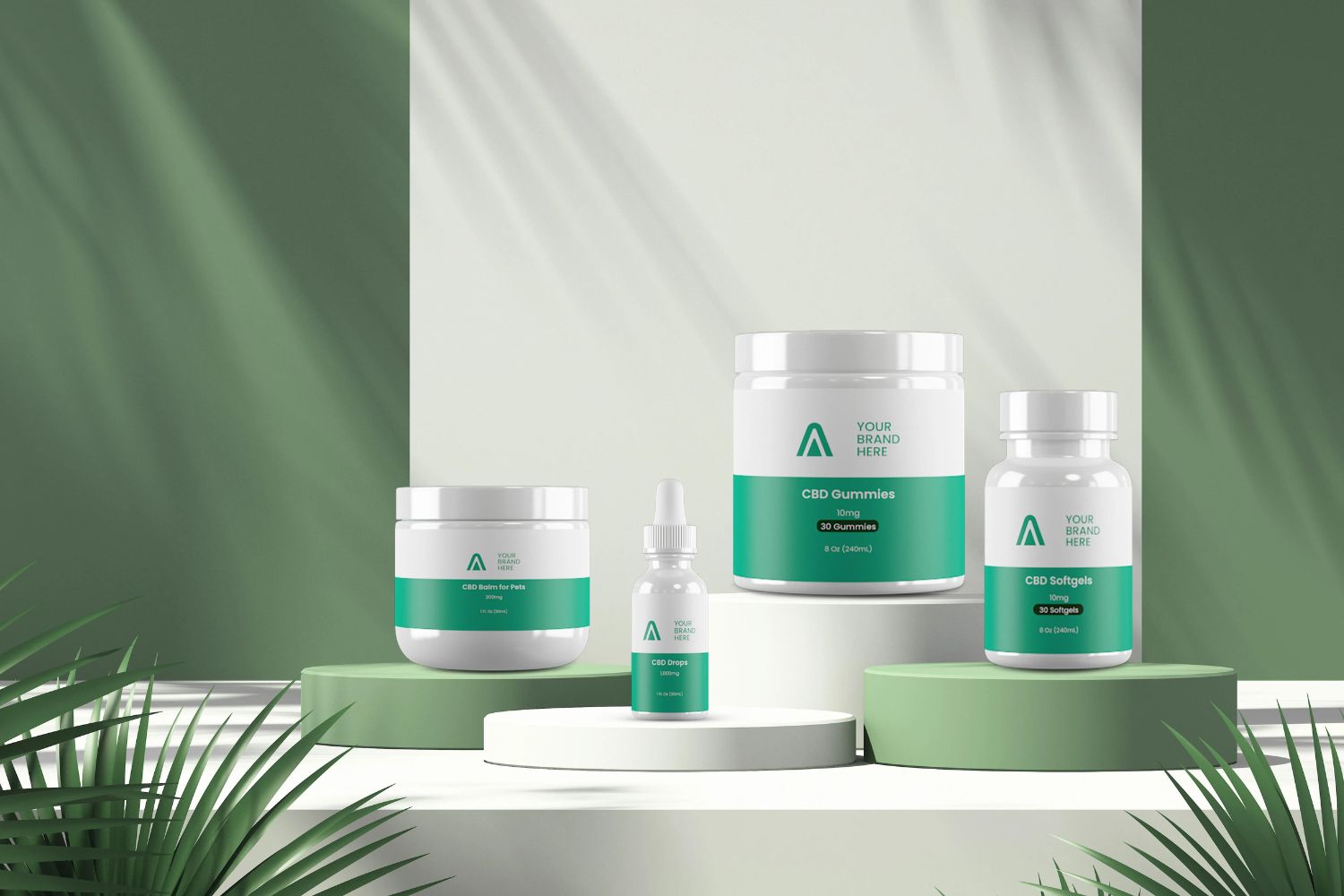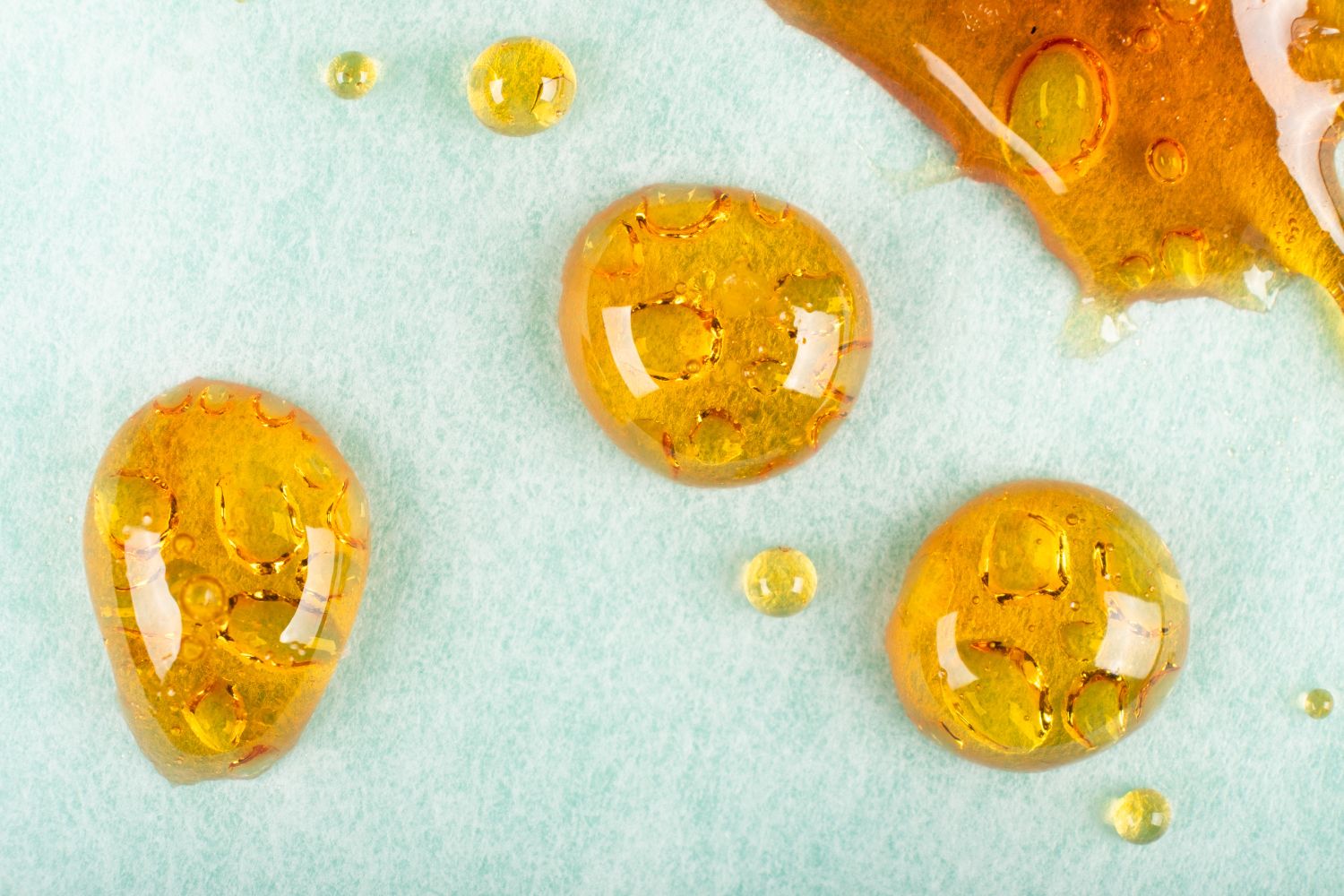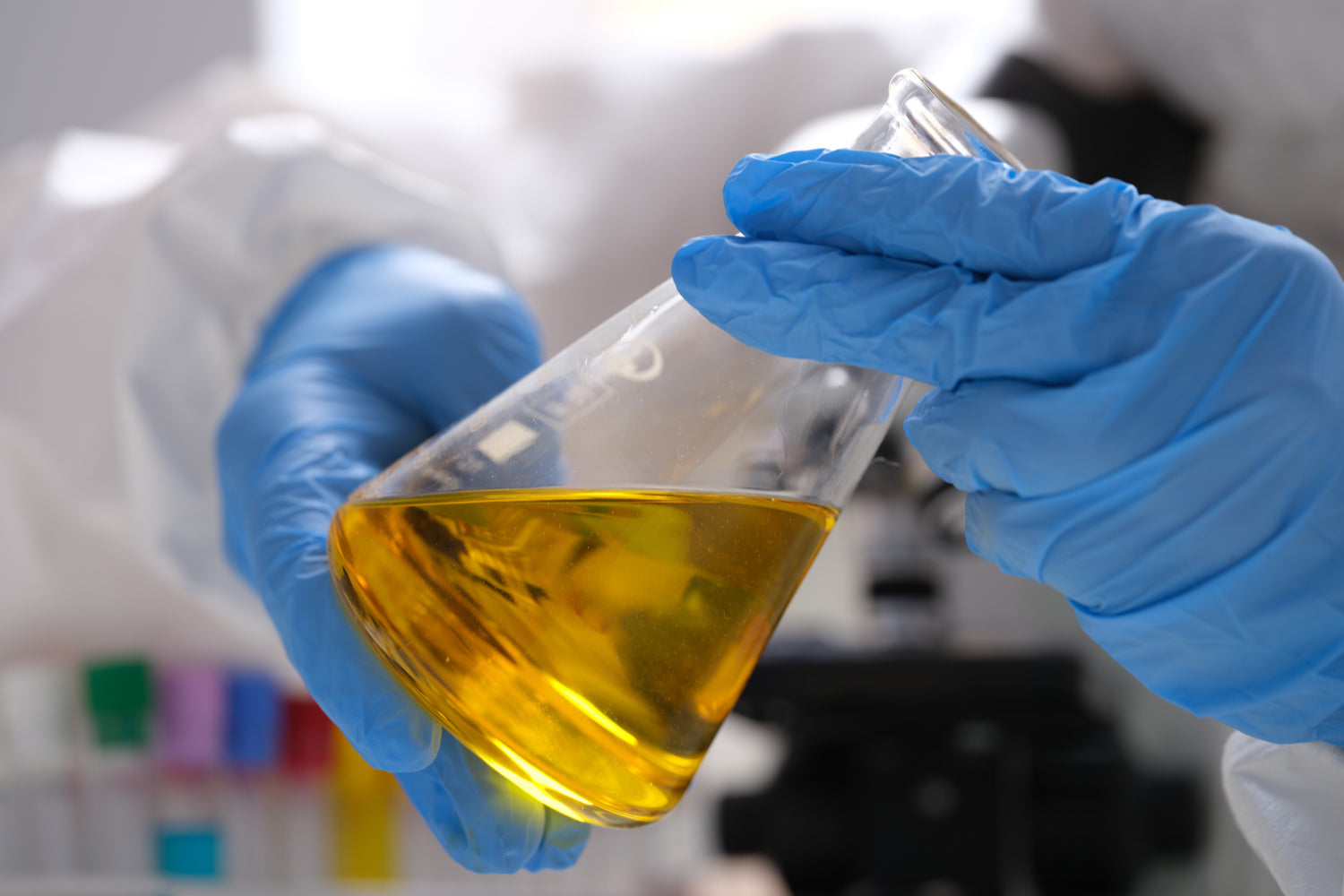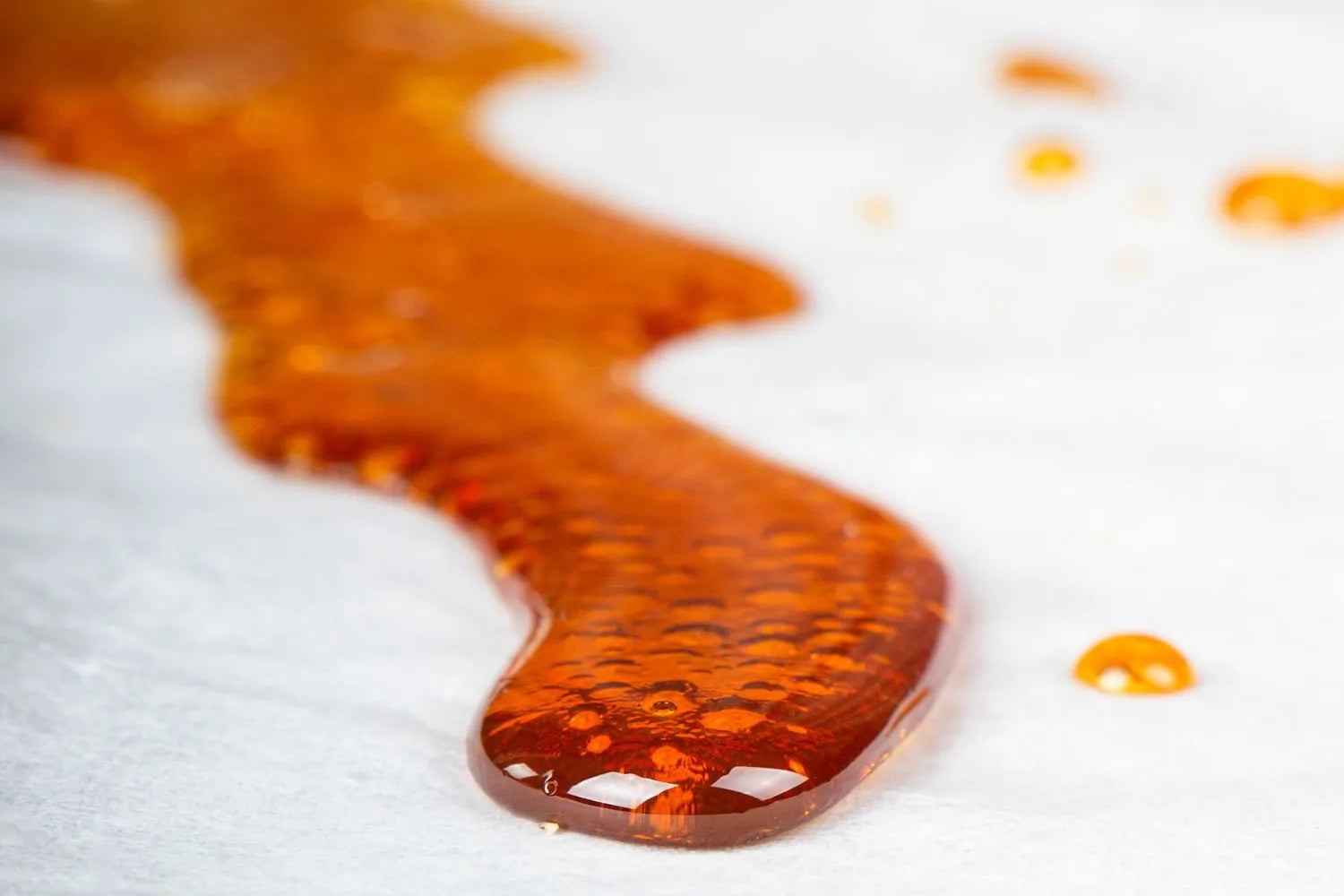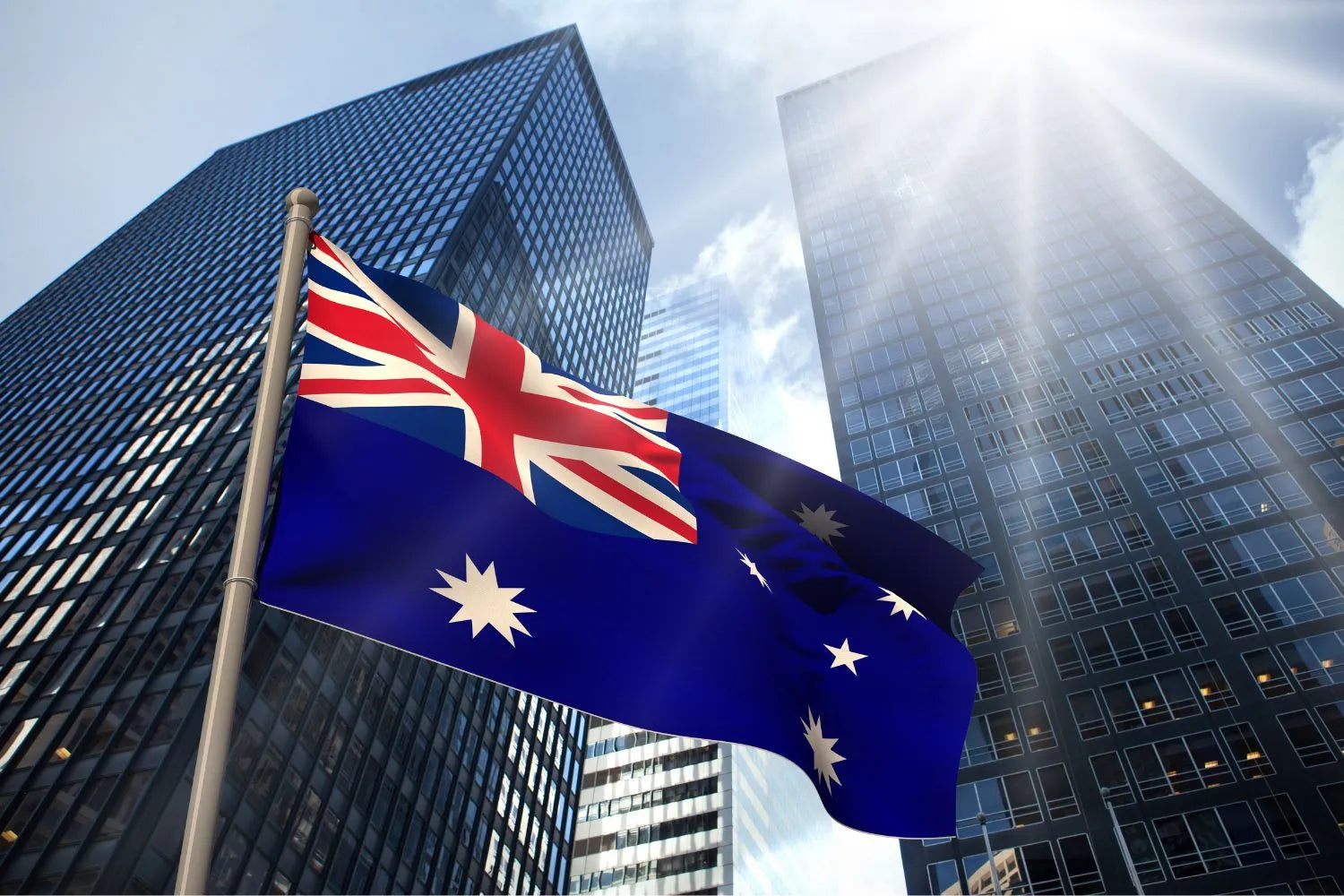Whether new to the CBD industry or looking to expand, selling your products is a huge undertaking. Manufacturing in-house requires a significant investment that isn't realistic for up-and-coming brands (without deep pockets).
White and private labeling offer cheap, efficient, and cost-effective alternatives where retailers control few - if any - functions related to labeling, production, and distribution. After all, what better way to reduce production overhead than to leave manufacturing to someone else?
However, it's best not to be hasty. Both white labeling and private labeling offer substantial advantages, so knowing the difference is critical if you want to choose the best option for your business needs.
What Does Private Label CBD Mean?
Often called "private labeling," private label CBD means the final product is a brand's original design. However, they source their ingredients from an outside manufacturer. For example, Arvanna is a manufacturer of private label manufacturer.
Generally speaking, a private label agreement allows brands to buy specific product components and create an original formula.
Examples include:
- CBD extract (full-spectrum, broad-spectrum, or isolate)
- Other cannabinoid extracts (CBG, CBN, etc.)
- Flavorings
- Carrier oils
- Uninfused creams (to be formulated later)
- Bottles (optional)
As a result, no two private-label products are alike.
The vendor can either procure those ingredients separately and assemble them in-house or contract their private-label manufacturer for production, labeling, and distribution.
We'll get into the advantages and disadvantages of a private-label business model soon. In short, a private-label product line is appropriate for brands that wish to cut costs and still have creative control. The private label manufacturer helps produce
Companies planning to release original items (but don't want to make them in-house) should sell private-label products.
What Does White Label CBD Mean?
While many retailers prefer selling private-label products, white labels offer almost all the same features as their private counterparts - with one key difference.
A white-label provider carries a generic formula, which multiple retailers can sell under their brands. In white labeling, clients can't make changes to the product.
Why White Label?
The white-label model suits CBD businesses that wish to take the "express route." White-label manufacturers assume the roles of distribution, production, labeling, and more.
Outsourcing those functions allows vendors to focus on their marketing strategy.
Essentially, white labeling lets CBD companies build brand recognition without designing their own products.
What is Wholesale CBD or Bulk CBD?
Wholesale or "bulk" CBD is cannabidiol extract sourced from a "wholesaler." This wholesaler purchases large quantities of products, which they sell to retailers.
Bulk orders provide better value, allowing vendors to sell individual units that generate higher margins. This is precisely how major outlets like Costco save customers money through larger quantities.
White Label or Private Label CBD: Which is Better?
Although subtle, there are key differences between the white label brand vs private label models. Making the correct choice should be your primary focus, especially if your brand name is at stake.
So which is better? The answer is "neither." White-label solutions and private-label products work well based on your brand's needs.
If you want creative control, choose private labels. White labeling works best for brands that want to avoid the costs of making their own products.
Pros and Cons of White Labeling and Private Labeling CBD
Many other retailers - not just CBD - prefer private or white-label services over in-house production.
Due to their similarities, however, white-label and private-label products carry virtually identical benefits and drawbacks. Before we examine a specific category, it's essential to understand the general pros and cons of employing a private-label or white-label manufacturer.
Advantages of Labeling
- Less overhead
- Simplifies marketing strategy
- Efficient for large orders
- Efficient mass-production
- Easy to make labeling changes
- Specialized services ensure top-quality labeling, manufacturing, and distribution
- Ideal for Internet-based businesses
In short, third parties provide an all-in-one solution to help streamline brand recognition, production, brand image, and marketing efforts.
Disadvantages of Labeling
- Less oversight, relying on a trusted third-party manufacturer for quality, testing, and compliance
- Shipping delays and other contingencies at the manufacturing company will directly affect your business
- Minimum order quantities (MOQs) may be too high for your needs
With a general understanding of the white label vs private label options, the next step is determining which service suits your needs.
Pros of Private Labeling CBD
- Custom manufacturing
- Outsourcing to a private-label manufacturer allows for more production with less overhead
- Quickly builds the brand without many of the associated costs (i.e., HR, infrastructure)
- Dedicated experts to assist with product testing, formula creation, label design, and more
- The client has full control of product formulas, marketing, and label creation
- Product exclusively sold under one retailer
- Internet-based businesses can build a unique brand
Cons of Private Labeling CBD
- No quality control, relying on the private label manufacturer for compliance and assurance
- Hemp source may be false or unknown
- Defects and recalls will be blamed on your brand, not the third party who made the product
Pros of White Labeling CBD
- Organizations can launch the same products through multiple brands, increasing revenue through exposure
- Cheaper products allow stores to sell their white-label options at competitive prices compared to name brands
- Eliminates time-consuming and expensive functions for clients
Cons of White Labeling CBD
- No creative control or dedicated help
- Knockoff brands may closely copy the packaging of more recognizable vendors
- A retailer with enough resources could saturate the market with its line of white-label brands, pushing out competitors
- White labeling is common, which results in market saturation
- Product sourcing and third-party tests are out of the vendor's hands
Which Method is the Fastest to Reach Market?
White-label companies reach the market faster than their private-label counterparts. This is hardly surprising since white-label products don't undergo any design or testing stage by the vendor.
White-label product manufacturers handle every function - albeit at the cost of creative input and control. Rebranding and selling are all that's left.
What are Private Label Manufacturers?
Private-label manufacturers are organizations catering to private-label brands. They provide the necessary services - such as manufacturing, distribution, and labeling - for aspiring vendors to offer custom-made private-label products.
What is a Private Label Brand?
As we covered earlier, a private-label brand offers an original product but outsources many of the critical functions associated with creating it.
How Does Private Label Work?
Private-label brands undergo the same process to create an individual product without the associated overhead.
The private-label client instructs a third-party manufacturing company to create a uniquely formulated product. Next, the private-label service makes the item, continuing to produce it under one label.
Some examples of private-label brands are Costco's Kirkland and Wal-Mart's Greate Value.
How Does White Label Work?
White-label manufacturing is like the "lite" version of the services offered by private-label companies. However, focusing on branding and delegating product creation to an outside source is more manageable.
With white-label practices, the client chooses a generic product from a third-party white-label manufacturer and passes it off as their own. This means multiple clients can offer the same item under their names.
White-label product examples include store-brand medications like acetaminophen (Tylenol) and ibuprofen (Advil). The drugs have an identical makeup but are available under many names.
How to Private Label CBD Products?
Before you employ a private-label manufacturer, you need to create an item. Unlike white-label practices, products aren't pre-made for immediate resale.
The process involves a few key steps.
Step 1: Choose Your Private-Label Product
There are many CBD offerings available. You need to know which ones to sell. Common choices include:
- Oils and tinctures
- Gummies and other edibles
- Topicals
- Drinks
- Capsules
- Vaping and smoking products
- E-liquids
- Accessories
Step 2: Determine the Potency
CBD products come in various concentrations, with some notably higher than others. Now, you can choose between several potency options or request custom ones (assuming the manufacturer allows it).
Step 3: Add Other Modifications
Finally, brands choose other additions like flavor, color, and scent. Private-label manufacturers offer large catalogs of options. Some might entertain custom requests.
What Products Does Arvanna Private Label Offer?
Arvanna offers a broad range of private label services and products to help aspiring CBD brands cut costs and reach their potential. Established vendors can also benefit from the reduction in overhead.
In an effort to provide access to as many products as possible, Arvanna supports a significant number of products and ingredients:
- Full-spectrum CBD distillate
- Broad-spectrum CBD distillate
- Crystal resistant CBD distillate
- CBG Isolate
- CBN Isolate
- CBD Capsules
- CBD Gummies
Can You Private Label CBD Products on Amazon?
While many products can be private labeled on Amazon, CBD products are prohibited. Despite the changes in federal law, Amazon still considers CBD a "controlled substance."
Furthermore, Amazon deals with clients all over the world. CBD is illegal in most countries, with some places imposing severe penalties for cannabis-derived products.
Many brands bypass this restriction by not mentioning "CBD" or related terms in their product descriptions. They may also label their products as "hemp seed oil," a legal dietary supplement with no cannabinoids. Another trick is to rely on product recognition through other channels, like social media. Consumers then know what to look for on Amazon.
However, these practices are dishonest, putting you at risk of being shut down if Amazon picks up on your activities.
Conclusion: White Label or Private Label CBD
The choice between white label vs private label CBD boils down to your business needs.
If you want to create a unique product that brings a competitive edge to the CBD market, private-label is the best route.
Alternatively, white-label is an excellent choice for expedited sales and branding since everything is pre-prepared for clients to brand.
Both have benefits and drawbacks, so take the time to research them and see which direction you want to take.

